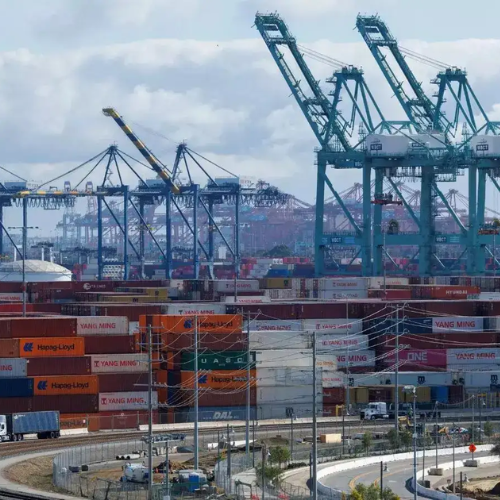In a significant setback to India’s strategic goals, the United States has taken a tough stance on Iran’s Chabahar port project by canceling the special sanctions waiver that was previously granted. The Chabahar port, located in Iran’s Sistan-Baluchestan province, is a deep-water port and plays a critical role in India’s regional connectivity plans. India and Iran signed a 10-year agreement in 2022 to develop the port into a major hub for trade and connectivity in the region.
India had envisioned Chabahar as a gateway to Afghanistan, Central Asia, and beyond, bypassing Pakistan. For this ambitious plan, India committed $120 million through India Ports Global Ltd (IPGL) to equip and develop the port. Additionally, a credit line of $250 million was offered to Iran to improve infrastructure related to Chabahar. Under this agreement, India was set to operate the port for 10 years while further modernizing its facilities.
Chabahar’s importance lies in its ability to provide India secure access to Afghanistan and trade routes that avoid Pakistan. It is the closest Iranian port to India, located on the open sea, making it ideal for handling large cargo ships.
SpaceX Scandal: Daghestani Billionaire Owned Stake While Under U.S. Sanctions
Trump Revokes Sanctions Waiver
In November 2018, the US granted India a narrow exemption from sanctions to develop the Chabahar port. This exemption was important because it allowed India to continue its work without facing penalties. The US acknowledged that Chabahar served as a vital channel for humanitarian aid and trade for Afghanistan.
However, the recent decision by the White House to rescind this waiver has put India’s plans at serious risk. The decision was outlined in a Presidential National Security Memorandum, where the US President directed officials to review and revoke any sanctions waivers that provide Iran with financial or economic relief. This included the Chabahar port project.
The memorandum specifically instructed the Secretary of State to cancel exemptions related to Iran’s Chabahar port development. With this directive, all economic activities involving Chabahar that previously enjoyed protection under the waiver now fall under US sanctions.
Strategic Impact on India
The cancellation of the waiver has delivered a blow to India’s strategic interests in the region. For India, Chabahar is more than just a port—it is a crucial link in its efforts to strengthen ties with Afghanistan and gain access to the markets of Central Asia and Eurasia.
Under the original agreement with Iran, India was responsible for equipping and operating the port for 10 years, which would have opened new opportunities for trade and collaboration. However, with the sanctions now applying to the port’s development, India’s investments and efforts face an uncertain future.
Trump’s Reckless Tariffs Could Backfire, Forcing U.S. to Rely on Sanctioned Venezuelan Oil
The US’s earlier recognition of Chabahar as an essential humanitarian and trade route for Afghanistan has now been reversed. This move is seen as part of a broader push by the US to tighten economic pressure on Iran, even if it impacts its allies like India.
India’s Investments at Risk
India’s efforts to enhance regional connectivity and reduce dependency on Pakistan’s routes have taken a major hit. The $120 million investment by India Ports Global Ltd and the $250 million credit extended to Iran could now be caught in a web of restrictions, further complicating India’s projects in the region.
Chabahar’s strategic value lies in its potential to transform trade routes and bypass political challenges in South Asia. However, the US decision has created significant obstacles for India, casting uncertainty over a decade-long agreement that aimed to bolster regional cooperation.
This abrupt policy shift has not only created logistical challenges for India but has also strained its efforts to strengthen its economic and political ties with Iran. The Chabahar port, envisioned as a vital link in India’s connectivity strategy, now faces a clouded future due to the cancellation of the sanctions waiver.


